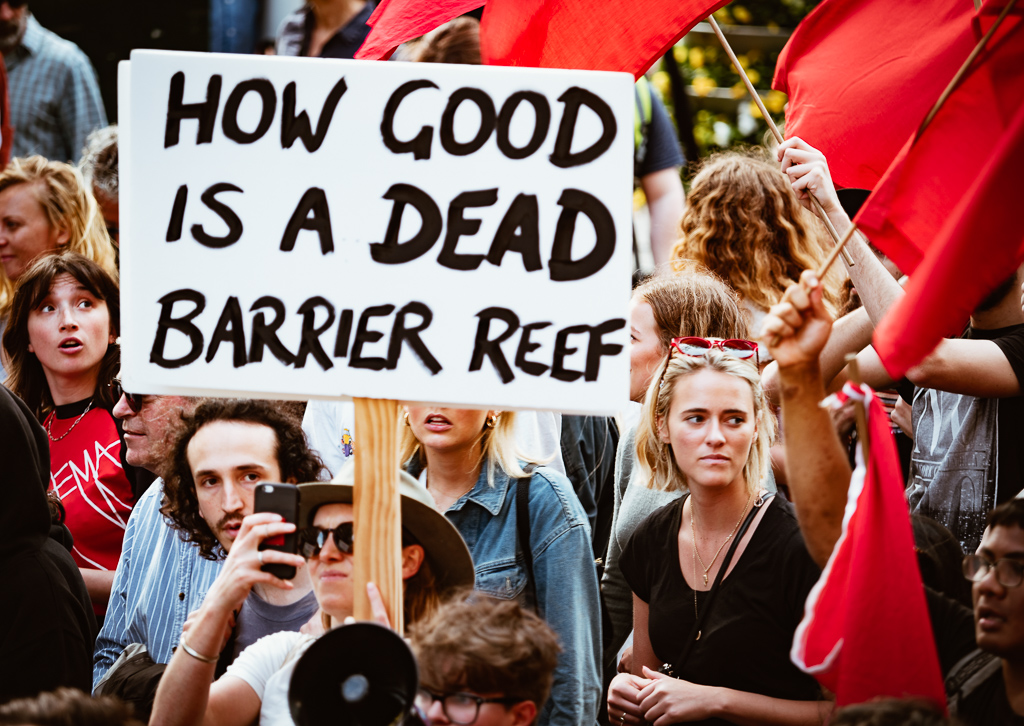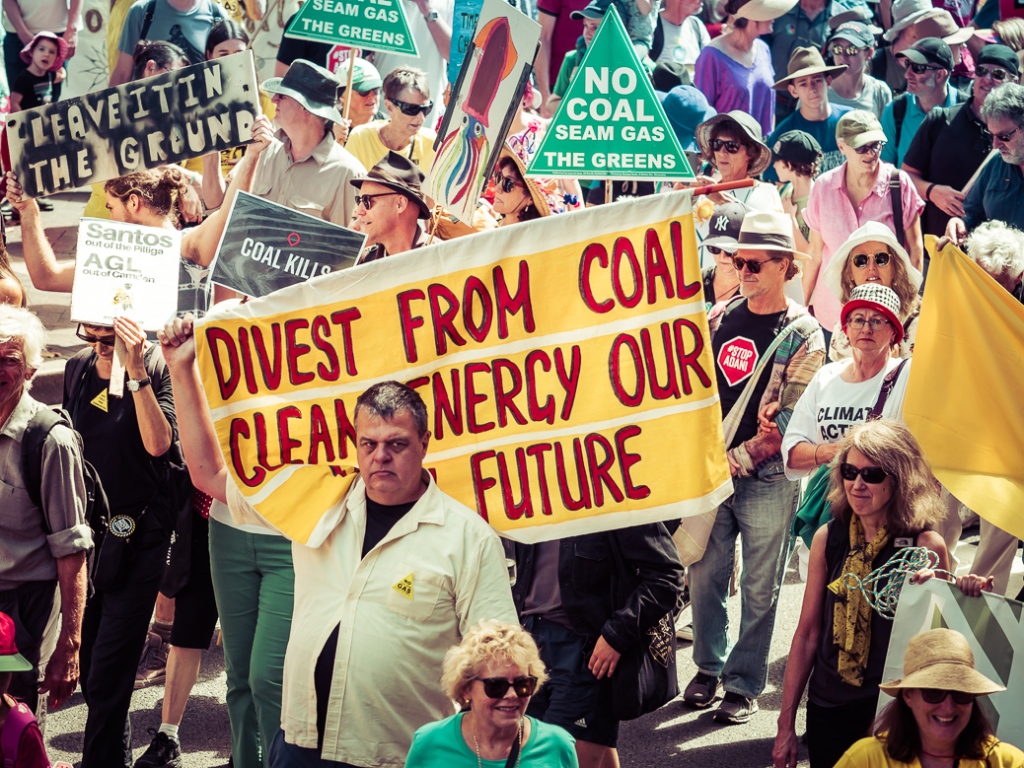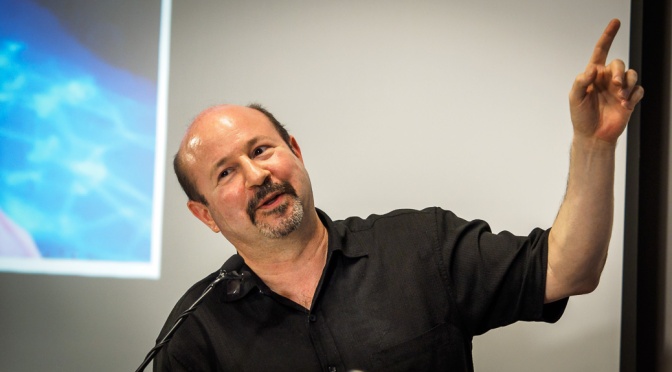Elke Schuessler from Leuphana University, Lüneburg has recently published this review of our book Organising Responses to Climate Change: The Politics of Mitigation, Adaptation in the journal Organization Studies. It contains some interesting reflections on our analysis and the implications for future management and organization research and is reproduced in full below.
Continue reading Book Review: The Politics of Climate ChangeTag Archives: research
Book Review of “Organising Responses to Climate Change”
Hans Baer from the University of Melbourne has just published a review essay covering eight of the most recent books examining climate change and capitalism. The essay includes a review of our most recent book Organising Responses to Climate Change. The following is an extract from that review essay which can be found in full in the latest issue of the Journal of Australian Political Economy.
Continue reading Book Review of “Organising Responses to Climate Change”Coral Not Coal! The Roles of Celebrities in Climate Change Contestation
Celebrities are increasingly important actors in social disputes, with their high public profiles used to amplify political campaigns and businesses using celebrity endorsements to promote their brands and justify their actions. Celebrities are particularly prominent in climate politics in endorsing green issues, educating citizens about pressing environmental concerns, as well as potentially defending implicated industries from critique.
Continue reading Coral Not Coal! The Roles of Celebrities in Climate Change ContestationFrom Denial to delay
In this current era of increasing climate activism, a key question that emerges is how the fossil fuel sector continues to avoid social and political sanction given the threat its activities pose to the future of human civilization? In a recently published paper in the journal Energy Research & Social Science, we investigated how the Australian fossil fuel sector has sought to maintain its political dominance in the face of growing social critique. Drawing on an analysis of media coverage and industry press releases during the period 2008-2019, we identified the core discourses underlying the Australian fossil fuel sector’s response to growing public concern over climate change and how these discourses stabilize the hegemonic project and defuse central themes of critique.
The following is a summary of the full article which can be viewed here.
Continue reading From Denial to delayA Climate of Denial: Coral Bleaching, Political Obfuscation, and the Climate Crisis
“It was catastrophic, gut wrenching and incredibly disturbing. That was one of the most comprehensive hard coral cover sites on the Reef and all of the coral in the shallows was fully bleached. That’s when we knew that we’d lost that site.”
Our guide’s words cut through the sea breeze blustering over the stern of our dive boat. Our tour group of about thirty, were sitting in our wetsuits, warming ourselves after another dive on Opal Reef off Port Douglas, listening to Paul describe his reaction to that first coral bleaching event and trying to make sense of what we had just experienced: “In 2016, the world lost a lot of its living coral and the Great Barrier Reef was no exception. What’s causing it is global warming induced rises in water temperature.” That day we had seen stunning congregations of staghorn and branch coral, delicate sponges, vivid blue giant clams, large boulder corals metres across, and myriad fish coloured in reds and blues and greens darting in and out of our way. But we had also seen large swathes of dead coral on the top of the reef, their skeletal remains just discernible behind a shroud of algae.
Continue reading A Climate of Denial: Coral Bleaching, Political Obfuscation, and the Climate Crisis
Organizing in the Anthropocene
Human civilization has now irrevocably altered basic Earth systems. Two centuries of industrialisation and economic globalization based upon the rapacious exploitation of fossil fuels, and the destruction of forests, lands, oceans and cultures has disrupted the Earth’s atmosphere and ice caps and devastated the biosphere. This has occurred at such a scale and pace that Earth scientists argue we are leaving the Holocene geological epoch and entering the more volatile ‘Anthropocene’.
Why Business Won’t Save Us From Climate Change
Climate change is now the ever-present reality of human experience. In recent times we have witnessed a procession of huge hurricanes batter the US and Caribbean, record-breaking monsoons flooding Asia, and in Australia, despite the death of up to half of the Great Barrier Reef in back-to-back coral bleaching events, political support for new mega-coal mines and coal-fired power stations. While there is now clear scientific agreement that the world is on track for global temperature increases of as much as 4 degrees Celsius by century’s end (threatening the very viability of human civilization), our political and economic masters continue to double down on the fossil fuel bet, transforming perhaps the greatest threat to life on this planet into ‘business as usual’.
Continue reading Why Business Won’t Save Us From Climate Change
Changing the World? Academic Impact, Activism and the Neoliberal University
Recently Carl Rhodes, Alison Pullen and I published an article in the journal Organization exploring the reframing of academic impact in the neoliberal university.
In the article we explore how ‘impact’ has become the buzzword of the contemporary university, and the value of academic research is increasingly judged by government, administrators and industry in terms of its contribution to economic growth and productivity. For example, the Australian Research Council (ARC)’s Research Impact Principles and Framework (2015) states that:
‘the Australian Government recognises the importance of research, science and innovation for increasing productivity and wellbeing to achieve long term economic growth for the Australian community’.
Continue reading Changing the World? Academic Impact, Activism and the Neoliberal University
Approaching the precipice? A review of Climate Change, Capitalism and Corporations
Professor Carl Rhodes of the University of Technology Sydney recently published an excellent review of our book Climate Change, Capitalism and Corporations: processes of Creative Self-Destruction in the journal Organization in July 2017. You can read the full review below.
The cover of Christopher Wright and Daniel Nyberg’s Climate Change, Capitalism, and Corporations features the artwork Insatiable by Theodore Bolha and Christopher Davis. The image is dirty, brooding and apocalyptic. At its centre is a naked man, bent over and screaming. An industrial landscape weighs heavy on his back as black smoke pumps into the murky sky. As if about to fall to his knees and crawl, he follows a small group of wild animals all heading to a precipice, seemingly unaware of their impending doom. The image is suggestive of humankind’s bleak destiny wrought at the hands of its own creation yet seemingly beyond its own control. It is an ominous and pessimistic portrayal of the effects of an insatiable industrial machine. Continue reading Approaching the precipice? A review of Climate Change, Capitalism and Corporations
What if? Trump’s environmental legacy in 2019
Shortly after the election of Donald J. Trump as 45th President of the United States in November last year, Jane Lê and I were asked by the University of Sydney Business School to imagine what the US would look like in 2019, two years into the new Presidency. So we cast caution to the wind and decided to record a ‘What If’ podcast imagining what Jan 2019 might look like in the US with respect to the environment, energy and climate change.
Continue reading What if? Trump’s environmental legacy in 2019
Professor Michael Mann in Australia
Last week the Sydney Environment Institute and the Balanced Enterprise Research Network at the University of Sydney Business School hosted a visit to Australia by world-renowned climate scientist Professor Michael Mann. Professor Mann is Distinguished Professor of Atmospheric Science at Penn State, with joint appointments in the Department of Geosciences and the Earth and Environmental Systems Institute (EESI). He is also director of the Penn State Earth System Science Center (ESSC).
Call for Papers: ‘Organizing and the Anthropocene’
The following is a Call for Papers for a Special Issue of the academic journal Organization. Full paper submission deadline is 28th February 2017.
‘Human activities have become so pervasive and profound that they rival the great forces of Nature’ (Steffen, et al., 2007)
Through the rapacious consumption of fossil fuels, industrial activities and the destruction of forests, oceans and natural resources, humans have fundamentally changed basic Earth systems. This has occurred at such a scale and pace that Earth System scientists argue we are leaving the Holocene geological epoch and entering the more volatile ‘Anthropocene’. This is a period in which human activity has discernibly affected the Earth’s global functioning to such an extent it is now operating outside the range of any previous natural variability (Crutzen, 2002; Hamilton, 2015; Steffen, et al., 2007). These changes reduce the ‘safe operating space for humanity’ (Rockström, et al., 2009), and include: a likely step-change in the average temperature of the planet this century of around 4 degrees Celsius (New, et al., 2011); the sixth great species extinction in the geological record (Kolbert, 2014); the acidification of our oceans; the disruption of the nitrogen and phosphorus cycles; and the pollution of air and water with a range of chemical toxins (Whiteman, et al., 2013). Extreme weather events, sea-level rise, food and water shortages, and accompanying political conflicts and wars suggest that life this century for much of the planet’s population will be ugly, violent and precarious (Dyer, 2010). The implications for organizations and organizing could not be more profound. Continue reading Call for Papers: ‘Organizing and the Anthropocene’
Capital & Class Review of Climate Change, Capitalism and Corporations
Book Review: Climate Change, Capitalism, and Corporations. Processes of Creative Self-Destruction by Christopher Wright and Daniel Nyberg, Capital & Class, 40(2), pp.394-396, doi:10.1177/0309816816661148n
Marc Hudson, Sustainable Consumption Institute, University of Manchester.
In December 2015 world leaders gathered to proclaim climate change was a threat that they were (finally) going to do something about. After two weeks of speeches and haggling, the deal was done, the world saved. Never mind that the text was silent on fossil fuels, and that in the following week the UK government expanded fracking, the US rescinded a forty year old ban on oil exports and Australia gave new permits for coal mines. Those are minor pesky details; corporate capitalism has the best interests of everyone – rich, poor, black, white, the unborn generations to come, other species – at heart. Continue reading Capital & Class Review of Climate Change, Capitalism and Corporations
Launch of Facing the Anthropocene
Last Friday evening I was asked to speak at the international launch of Canadian ecosocialist Ian Angus’ new book Facing the Anthropocene: Fossil Capitalism and the Crisis of the Earth System. The transcript of my address is reproduced below (spoiler – I really liked this book!): Continue reading Launch of Facing the Anthropocene
Recent Commentary on Climate Change, Capitalism and Corporations
Our new book Climate Change, Capitalism and Corporations: Processes of Creative Self-Destruction has been a feature of a number of recent analyses of the climate crisis.
For instance, world-renowned ecologists Anne and Paul Ehrlich recently wrote an article entitled “Faith-Based Economics: The Corporate World and the Survival of Civilization” which critiqued business assumptions of economic growth and neglect of environmental limits. Here they noted:
Corporations are the most organized segment of society that actually believes the message of faith-based economics, although cracks have appeared in the façade. For example two business professors, Christopher Wright and Daniel Nyberg, have just published a book, (Climate Change, Capitalism, and Corporations: Processes of Creative Self-Destruction) that provides a detailed and well-documented account of how corporations are destroying civilization by keeping that faith: the standard business-school/Wall Street message that climate disruption, a result of market success in turning natural resources into stuff and waste, can only be cured by business as usual. Faith-based economics requires continued exploitation of natural resources and continued growth of the global economy. As Wright and Nyberg say:
“…corporate capitalism frames business and markets as the only means of dealing with the crisis, rejecting the need for state regulation and more local democratic options. In essence, the prevailing corporate view is that capitalism should be seen not as a cause of climate change but as an answer to it. A problem brought about by overconsumption, the logic goes, should be addressed through more consumption.”
As Clive Hamilton put it in the introduction to the book, “The hard truth is that these corporations would sooner see the world destroyed than relinquish their power.” Continue reading Recent Commentary on Climate Change, Capitalism and Corporations

















